Business
FIRST BANK: STILL STANDING GIDIGBA 125 YEARS AFTER
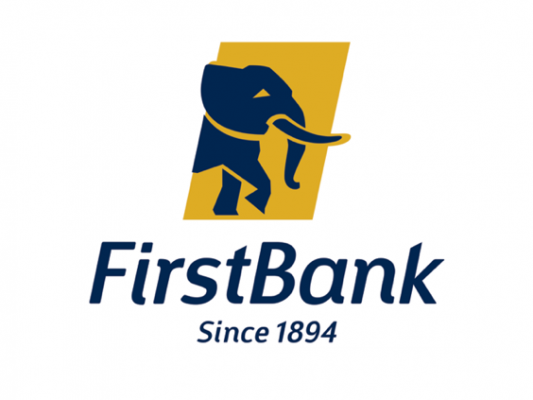
F
BY ALEX OTTI
This week marks the celebration of the 125th anniversary of the existence of the First Bank franchise in Nigeria. This stands the bank out as one of the earliest institutions established in West Africa, and obviously, one of the handful still in existence today.
The bank began as the Bank of British West Africa (BBWA) in 1894 and quickly began playing the role of the Central Bank of British West Africa in the absence of a regulator at those medieval times in the sub region. The bank witnessed the amalgamation of the Northern and Southern protectorates and the eventual independence of Nigeria in 1960. It was founded by Alfred Lewis Jones, a shipping magnate who imported silver currency into West Africa through Elder Dempster shipping company also owned by him.
In 1957, the bank changed its name to Bank of West Africa (BWA). Sequel to Nigeria’s independence in 1960, the bank began to extend more credit to indigenous Nigerians as most of its credit facilities were hitherto concentrated on foreigners living in the erstwhile colony.
Standard Bank acquired the Bank of West Africa in 1966 and changed its name to Standard Bank of West Africa. In 1969, Standard Bank of West Africa incorporated its Nigerian operations and its name had to change once again, this time to Standard Bank of Nigeria Ltd (SBN). In 1971, SBN listed its shares on the Nigerian Stock Exchange and placed 13% of its share capital with Nigerian investors. Following the implementation of the indigenisation policy of the then military government soon after the civil war, Standard Chartered Bank reduced its stake in SBN to 38%. This action led to another change in name to First Bank of Nigeria in 1979 as Standard Chartered Bank insisted that since it had lost majority control, the bank should no longer bear its name since by the action, it had failed to be its full fledged subsidiary.
This marked a watershed in the history of the bank as more Nigerians were appointed to the board and it began to look and operate more like a Nigerian bank. The bank had subsequently moved from a limited liability company to a publicly quoted company and back to a limited liability company which it presently is. The latest status is in compliance with changes in the regulatory environment in 2012 that required that the group operates as a holding company, with the bank as one of its subsidiaries or spin off other operations not related to banking. That marked the birth of FBN Holdings which presently has the bank and non bank subsidiaries as part of the group.
In 1982, First Bank opened a branch in London and converted same to a full fledged subsidiary, FBN Bank (UK) in 2002. Two years later, in 2004, a representative office in Johannesburg, South Africa, debuted. At the moment, First Bank has subsidiaries or representative offices in France, China, Democratic Republic of Congo, Gambia, Sierra Leone, Ghana, Guinea and Senegal. At the last count, First Bank had presence across 10 countries in three continents. It operates from over 750 locations and employs close to 22,000 people. Its has over N3.3trillion in total assets. It also boasts over N2.5trillion in Customer deposits with a tidy 19% Capital Adequacy Ratio (CAR). The bank has over 1.3m shareholders and over 14million customers.
Before going further, I must, in the full disclosure tradition of this column, declare that I joined First Bank as an Assistant General Manager on April 1, 2001 and left 10 years after, having risen to the position of Executive Director in 2011. I joined as part of the transformation team of the bank set up following a decision to institute comprehensive reforms in the bank. The project, titled, “Century 2, the New Frontier” effected a total change in the way things were done in the bank. Readers will realize, in the course of this essay, that a major part of the resilience and longevity of the bank has to do with its ability to keep pace with changes, not just in the banking ecosystem, but the global environment.
It is pertinent to note that so many institutions and companies disappear after only a few years of existence and therefore, there must be some distinguishing characteristics that have made First Bank, not only to survive but to excel in the last one decade and a quarter. I will attempt to share my own thoughts on this, which would definitely not be exhaustive.
One thing that stands the bank out is that everything it does is woven around strategy. In my days at the institution, and I believe it should still be the same now, the bank will start a year with long board and management strategy sessions. These comprise long and short term strategies. The long term strategies normally have a horizon of 5 years while the short term ones are normally between one and three years. I am sure some people, particularly in other environments, will argue that 5-year strategies would be at best described as medium term, but the truth is that in the Nigerian market, 5 years is even too long given how rapidly things change here!
Organizations succeed and fail on strategy. The profound saying that when you fail to plan, you plan to fail fits in perfectly here. It is also said that when you are not certain about where you are going, any road takes you there. Having a clear strategy is one thing, achieving flawless execution is another. I am aware of organisations that are very long on plans and short on implementation. On this, you must give it to First Bank as it is also very good on monitoring and measurement. It is a known fact that what doesn’t get measured, hardly gets done. So, to execute, you must have measurement tools and put in place, a system that not only rewards good performance but also poor performance. I can still remember our strategy sessions as we joined in 2011, where the then CEO, Mr. Bernard Longe reeled out the Big Hairy Audacious Goal (BHAG) of “being twice as large as the second largest bank in Nigeria by a defined future date”. Yes, the bank may not have achieved that goal within the timeframe, but it did have a goal and it did work towards that goal. It is in strategy that you define who you want to be, who you want to serve, how you want to serve them and what distinguishes you from the “guy down the road”. Once you have those agreed, the tools and the people must also be addressed. I have seen situations where management disbands a strategy put in place by the organisation only to replace it with a weak strategy or none at all and in consequence end up as lunch for competition.
First Bank is noted for its very strong corporate governance regime. I believe this is at the heart of the longevity of the bank. In our days and I believe it is the same till today, there are things you simply could not do irrespective of who you were. Just like any organsation, the bank had a soul, meaning the key board members who called the shots. But every decision had to go through a process. Having survived over a long period of time, most things were documented and rules were strictly adhered to. I recall that even loan applications from viable businesses of shareholders of the bank must not only be disclosed, but must go through rigorous processes before they were approved. And with the Risk Management function under very experienced professionals with the brilliant Sanusi Lamido Sanusi, who was later to become CEO of the bank and six months later, the CBN Governor and currently the Emir of Kano, you couldn’t go round the process. By the way, it will not be out of place to mention that I was appointed an Executive Director the same day, September 4, 2005 with HRH Sanusi who had joined from UBA. Others appointed same day with us were Oladele Oyelola, Remi Babalola who went on to become Minister of State For Finance, and Mrs Bola Adesola, the current CEO of Standard Chartered Bank. We joined the only surviving executive director from the regime before ours, Mr. John Aboh, who is the current Chairman of Ecobank Nigeria and the then CEO of the bank, Mr. Jacobs Moyo Ajekigbe.
As we were appointed, we were handed over a merger and acquisition deal, (some called it outright takeover bid) with another bank with footprints in some other African countries. The deal looked good on the surface, but some of us saw danger in the whole transaction as proposed. We struggled with that transaction for close to two years before resting it. Even though there was very strong support for the deal from some influential shareholders, management thought it was not going to create value for First Bank and therefore had to let it die a natural death. Yours truly had argued then that based on “back of the envelope analysis”, over 60% of mergers and acquisition destroy shareholder value. This my held position was to be corroborated by the Harvard Business Review Report in 2015 which stated that between 70% and 90% of mergers and acquisition destroy shareholder value and in fact fail. The reasons for failure are fully documented in the literature. One is glad that we still have the foremost Nigerian bank with us today celebrating its 125 years anniversary as some of us are persuaded that the situation would not have been the same if that deal went through. On this note, permit me to acknowledge the resilience of Mr. Jacobs Moyo Ajekigbe who showed strength of character as the buck naturally stopped on his table.
One of the lessons to learn from the First Bank story is its ability to adapt to changing situations in the environment. For an organisation to adapt, it must understand the environment and be able to read changes and sometimes predict them, even before they happen. The reality is that human beings will normally gravitate around their comfort zones and oftentimes, become very resistant to change. It is only an organisation that constantly interrogates the status quo that will be able to adapt to changes or even lead the change itself. In our time, we realized that we had what our Human Capital Management department referred to an “aging workforce”. Like Clinton would say about Senator Dole, “we did not have a problem with their age, but with the age of their ideas”. The bank started a workforce renewal strategy which saw to the entry of young people with fresh ideas who could relate to the youthful population who were basically in control of the “new money”.
To attract them, one needed people that not only looked like them but also reasoned like them. An age band was approved by management for different levels in the staff cadre. This tilted the average age of staff down significantly. Younger people were selected to replace those retiring on account of age. Technology was massively deployed as part of strategy. Service delivery, which was measured by external consultants, spiked in the positive direction. The bank was able to compete with smaller and younger banks, giving them a run for their money.
The brand equity is an important part of any organisation, more so a bank. First Bank benefited so much from its brand. Because some banks had come and gone and bank failures has not ceased even at this moment, the bank benefitted from its longevity. Some people joke about dead people’s money being warehoused in the bank. Besides, what the brand represents is also the conscious effort at tweaking the brand to be in tune with modernity, of course without doing away with the reassuring effect of the ‘elephant’. I remember with nostalgia, the first strategy session we attended in Gateway Hotel, Otta in 2001, a new colleague, had proposed that the bank should do away with the elephant as the animal is not known to be smart, fast and efficient. We were all shocked at the response he got. Virtually everyone, except those of them that were new, charged at him, in the manner of the elephant he wanted removed. That was the last time he made that kind of suggestion. It was considered a heresy to remove the elephant. The rest of the people that mustered courage to speak about the elephant talked about how to make it nimble, how to face it forward rather than backwards, how to get the elephant to raise one of its legs and generally how it would reflect efficiency in strength.
Finally, I have always maintained that an organisation cannot be better than its people.
First Bank has built a culture of employing very sound and good people. The recruitment process is excellent and gives little or no room for manipulation. The reward system ensures that the best people stay and misfits are gradually eased out. The compensation system remains competitive from what I hear and positions at the top are tenured such that the CEO and Executive Directors must retire after a maximum of two tenures of 3 years each. This policy makes it difficult for people to sit tight at those levels and also keeps the top open for deserving younger people to aspire. It is my sincere hope and belief that these time-honoured traditions of First Bank endure.
Let me therefore join millions of Nigerians to congratulate First Bank on this 125th Anniversary celebration and wish the Board, Management, Staff, Shareholders and Customers well. Of course, I pray for the continued sense of camaraderie that exists among the ex-staff of First Bank
Business
NNPCL and Corruption’s Final Throes

NNPCL and Corruption’s Final Throes
By Pius Olasanmi
In the twilight of the Obasanjo administration, when Nigerians were still capable of being outraged, when Turn Around Maintenance (TAM) of refineries was a buzzword that still held some mysticism to bamboozle citizens, during a conversation, a certain man said something profound. The man said, “As a businessman, if I were the owner of these refineries, knowing that they are three decades old, I would take the last money I have, hire bulldozers, raze them to the ground, and obtain loans to build new ones.”
When we pressed him further on why he would engage in such waste, he explained that repairing the refineries is the real waste. He explained that even if the TAM were honestly carried out, a thirty-year-old refinery would never compete favourably with a new one that would integrate contemporary technology. Operating at its best, such a refinery would never be comparatively more efficient. It is therefore pointless to have spent another one naira on the refineries at that point.
A few months later, I had a conversation with a then-lawmaker on an entirely different matter. I mentioned that the National Assembly has failed by not crafting legislation that would criminalise and punish public office holders who foist wrong decisions on the country. The logic: a public office holder need not steal to be punished, wrong decisions should attract penalties for an office holder who opts for the worst of all options when there are less injurious ones.
These established premises speak to the ongoing nauseating efforts at revisionism by those who wrecked the Nigerian National Petroleum Company Limited (NNPCL) and its previous iteration, the Nigerian National Petroleum Corporation (NNPC). Notably, this campaign to rewrite history is traceable to Engineer Mele Kolo Kyari, the disgraced immediate past Chief Executive Officer of NNPCL and his hirelings. They have suffocated the news and the public opinion space with even more lies than they spun while in office.
The Saint Kyari campaign is anchored on convincing Nigerians that the Port Harcourt, Warri and Kaduna Refineries were fully functional when he was booted out of office. So brazen is the campaign that one of its talking heads challenged the group chief executive officer (GCEO), Engr. Bayo Ojulari, to “inform Nigerians categorically what happened to the functioning refineries he inherited from his predecessor, Engr. Mele Kyari.” The effrontery.
We have not forgotten so soon the charade that followed the baffling claim that Nigeria has spent $2.8 billion on the repair of the refineries, while they are not churning out even a single litre of refined product among them. Saint Kyari and his goons played all manner of tricks, all of which embarrassed President Bola Tinubu, who had counted on ticking off the return to productivity of the refineries as part of his achievements, only to realise that he was deceived into celebrating phantoms. Tragic.
Lest we forget, 200 trucks were arranged as props in a well-directed video clip to celebrate the re-streaming of the Port Harcourt Refinery. The disappointment. Nigerians were to learn from several reports that the Port Harcourt refinery was not producing and was instead using old, stored petroleum products to load trucks. Worse still, the Kyari crew was passing off sanction-tainted Russian-sourced crude oil refined in Malta as locally refined products. More insult was piled on the assault on our collective sensibility with the lies that the Port Harcourt Refinery exported semi-finished products. Brazen.
Meanwhile, Kyari and his hirelings called those who pointed out or protested these glaring scams all manner of names. They hid behind industry technicalities and jargon to create the impression that those of us who knew Nigerians were being robbed did not understand what we were saying. The point remains that a $2.8 billion investment can potentially build a refinery with a capacity of around 100,000 barrels per day (bpd). Of course, the actual capacity of such a refinery will depend on various factors, including the complexity of the refinery, the technology used, and the location. That is the amount that Kyari’s regime at the NNPCL took and did not give Nigerians refined products.
Fast forward to Kyari’s sack and the appointment of Engineer Bayo Ojulari, who has demonstrated that things can indeed be done differently. Kyari’s exit was expectedly followed by the Economic and Financial Crimes Commission (EFCC) going after him and his associates. The extent of the theft is better understood against the backdrop of N80 billion being found in the bank account of one of his associates. They went on the run.
Perhaps because the EFCC was biding its time on securing international warrants for the arrests of these characters on the lam, they have become emboldened. They have decided to fight back and rewrite the story of their participation in the greatest fraud against Nigerians. Engineer Ojulari’s renewed mindset, which is entrenching a semblance of the transparency Nigerians demand, became their natural target. The demons that once roamed around the corporation came out with malevolence. They started spinning stories of corruption to tarnish the incumbent who refused to hide their crimes. The objective: bring Ojulari down. But alas, he is winning the war as it stands.
His innocence is proven, and it is glaring that those who want him out are mere charlatans who can no longer ply their corrupt wares because of the impact of the new reforms. Corruption in the NNPCL is in its final throes. The fake news being unleashed against the incumbent leadership is akin to corruption’s last kicks as reforms in the sector strangulate it and its practitioners. The reforms must take place in the NNPCL, whether the industry demons like it or not.
As a parting shot, Kyari and his associates would do well to prepare their defence. In addition to accounting for the $2.8 billion they laundered in the name of repairing the moribund refineries, they must also answer for the poor decision to fix that which is irretrievably broken. Awarding contracts for Turn Around Maintenance of 59-year-old refineries that a right-thinking person had suggested should be demolished almost twenty years ago, when they were only 30 years old, is criminal. Trying to deceive Nigerians that the fake repairs worked is treason.
Olasanmi is a public affairs analyst writing from Lagos.
Business
GRANDIS 5STAR LUXURY APARTMENT & SUITES SET TO REDEFINE LIVING IN VICTORIA ISLAND

GRANDIS 5STAR LUXURY APARTMENT & SUITES SET TO REDEFINE LIVING IN VICTORIA ISLAND
Set to Rise elegantly against the Lagos skyline, is the Grandis 5Star Luxury Apartment & Suites. According to Adejuwon Ademola, The General Manager of the Development company, it is more than just a residential building
“it’s a lifestyle statement. Standing 17 floors high in the heart of Victoria Island, this revolutionary masterpiece of modern architecture will offer a panoramic 360° view of Eko Atlantic, Victoria Island, and Ikoyi, transforming every apartment into an exclusive penthouse experience for the world’s most discerning elite.”

Developed by Dumarco Construction Limited, a globally acclaimed company with decades of delivering complex, high-value projects in the highly regulated petroleum, oil, and gas industries, Grandis 5Star brings unmatched international safety standards, uncompromising quality, and timeless elegance into Nigeria’s luxury property market.
> “When you live in Grandis, you’re not just buying a home—you’re investing in peace of mind, world-class safety, and an effortless luxury experience that will remain pristine for decades,” says Adejuwon A. Ademola, General Manager of Dumarco Construction Limited.
The Gold Standard in Safety and Quality
Dumarco’s roots in the oil and gas sector mean the company operates to some of the strictest safety protocols in the world. Every stage—from conceptualization, design, construction, to long-term maintenance—follows internationally accepted procedures and quality assurance measures. Cutting corners is simply not in Dumarco’s vocabulary.
> “In the oil and gas industry, there’s no room for compromise. We’ve brought that same discipline and zero-tolerance for mediocrity into property development,” says Ademola. “That’s why Grandis will be one of the safest and most enduring residential developments in Nigeria.”
To ensure transparency and prevent (project complacency), Dumarco deliberately separates the developer, contractor, and consultant roles, engaging only the most competent professionals in each respective field. Dumarco’s project team includes globally recognized contractors such as Julius Berger, Cappa & D’Alberto, and Elalan, Migliore Construczione & Tecniche (MC&T) and their partners VENCO IMTIAZ CONTRACTING COMPANY (VICC) based in Dubai, UAE, Business Contracting Limited, alongside leading consultants like Morgan Omanitan & Abe, LAMBERT, and James Cubitt.
Grandis – Investments, appreciation, returns and profitability
Our selection process for the location of the project alone was pains-taking and completely thorough scientific process. Top professional companies were employed to conduct a scientific data acquisition and analytical survey of the entire Victoria Island, Ikoyi, Lekki and Eko Atlantic before a project site is selected. Analyzing and acquiring areas developmental charts and trends, studying and gathering historical and present sale prices, rental charge and occupancy rates over a 50 year period from every individual street before the selection of the location of any of our developments especially true for the Grandis Project
He adds,
“Our clients and residents can be rest assured that the location of Grandis has been scientifically proven through all existing data to provide our clients with a 100% occupancy rate, highest developmental location, highest rental income and investment returns. ”
The Grandis Experience
Located minutes away from international corporate headquarters, embassies, and landmarks such as Eko Hotel, Radisson Blu, and the Radisson Red, Grandis offers unmatched convenience for professionals, diplomats, and high-net-worth individuals. Every residence is designed for both indulgence and efficiency, with high-grade finishes, smart-home systems, and private amenities that ensure seamless living.
From sunrise over the Atlantic to the glittering Lagos night skyline, residents will enjoy uninterrupted luxury, supported by discreet and highly trained staff, advanced security systems, and a design that prioritizes comfort and privacy.
> “We designed Grandis for people who want everything—security, elegance, convenience, and the assurance that their home will look as spectacular in 20 years as it does on day one,” Ademola notes.
A Legacy That Lasts
With its combination of visionary architecture, peerless safety, and meticulous maintenance planning, Grandis is built to remain iconic for generations. Thanks to Dumarco’s meticulous approach, the building’s service charges are expected to remain low while its value and appeal continue to appreciate over time.
In a market often marred by shortcuts and substandard practices, Mr Ademola says
Grandis stands as a beacon of what luxury living should be—safe, spectacular, and built to last.
“Grandis 5Star Luxury Apartment & Suites — Where safety meets sophistication, and every detail is designed for a life well-lived.”
He added
Website -www.dumarcoltd.com
Project website – www.26idowutaylor.com
Email [email protected]
Tel / WhatsApp +234 9077777883
GM – Adejuwon A. Ademola
celebrity radar - gossips
Nationwide Talent, One Broadcaster: Tinubu Picks Pedro, Bello, Din, Mohammed to Lead NTA
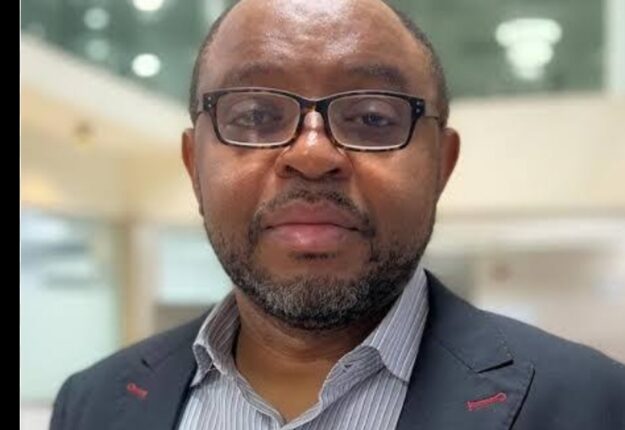
Tinubu Overhauls NTA Leadership: Media Powerhouse Rotimi Pedro Takes Helm as DG
President Bola Ahmed Tinubu has announced a major shake-up at the Nigerian Television Authority (NTA), appointing renowned media executive Rotimi Richard Pedro as the new Director-General in a move widely seen as a bold step toward modernising the state broadcaster.
Pedro, a Lagos native, brings nearly 30 years of expertise in broadcasting, sports rights, and marketing communications across Africa, the UK, and the Middle East. A trained entertainment and intellectual property lawyer, he also holds an MSc in Investment Management and Finance from City University Business School, London.
In 1995, Pedro founded Optima Sports Management International (OSMI), which rose to become one of Africa’s leading sports content providers—distributing premium events such as the English Premier League, UEFA Champions League, FIFA World Cup, and CAF competitions to audiences in over 40 countries.
His career highlights include top roles at Bloomberg Television Africa and Rapid Blue Format, as well as advisory work for FIFA, UEFA, Fremantle Media, and the African Union of Broadcasters (AUB). At the AUB, he was instrumental in securing exclusive pan-African free-to-air media rights for all CAF competitions.
Alongside Pedro’s appointment, Tinubu named Karimah Bello from Katsina State as Executive Director of Marketing, Stella Din from Plateau State as Executive Director of News, and Sophia Issa Mohammed from Adamawa State as Managing Director of NTA Enterprises Limited.
Industry insiders credit Pedro with building commercially viable broadcast platforms, driving sponsorship growth, and delivering world-class content to African audiences. His appointment marks one of the most significant leadership changes at NTA in years—signalling the government’s intent to strengthen the broadcaster’s competitiveness in a fast-evolving media landscape.
-
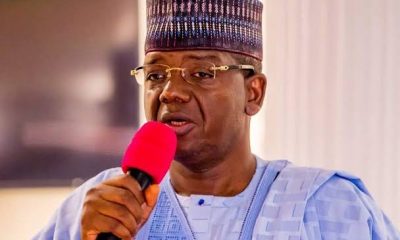
 society5 months ago
society5 months agoRamadan Relief: Matawalle Distributes Over ₦1 Billion to Support 2.5 Million Zamfara Residents
-
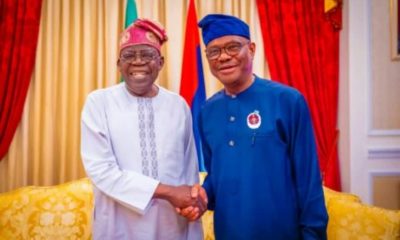
 Politics2 months ago
Politics2 months agoNigeria Is Not His Estate: Wike’s 2,000‑Hectare Scandal Must Shake Us Awake
-

 society4 months ago
society4 months agoBroken Promises and Broken Backs: The ₦70,000 Minimum Wage Law and the Betrayal of Nigerian Workers
-
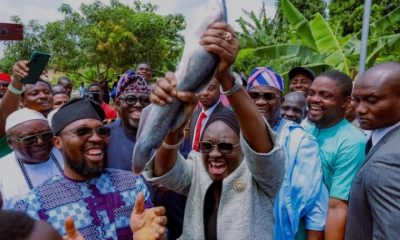
 society3 months ago
society3 months agoOGUN INVESTS OVER ₦2.25 BILLION TO BOOST AQUACULTURE






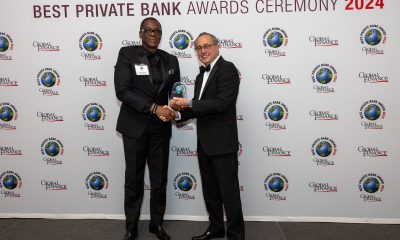


You must be logged in to post a comment Login